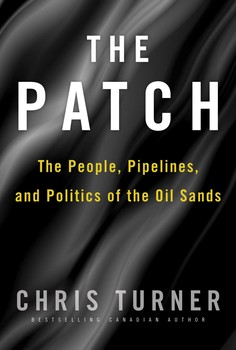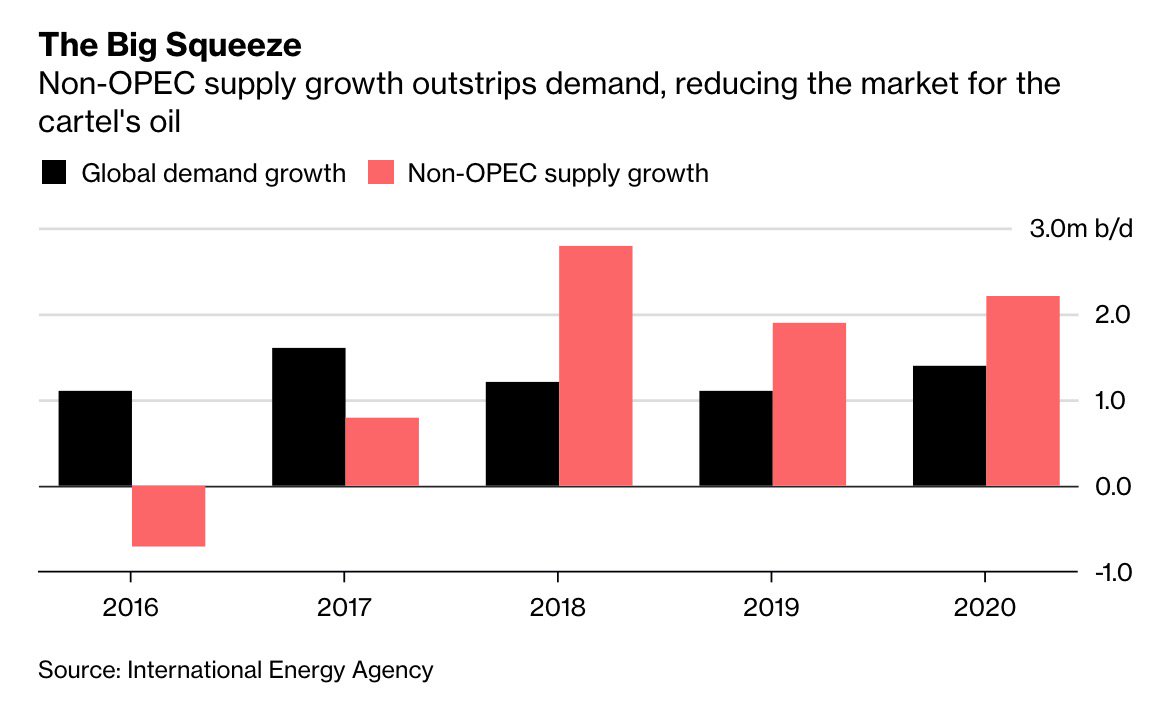 I am just finishing Chris Turner’s important book The Patch: the people, pipelines and politics of the oil sands. Every Canadian could benefit from reading it and learning more about this history and what present challenges import for Alberta and the Canadian economy going forward.
I am just finishing Chris Turner’s important book The Patch: the people, pipelines and politics of the oil sands. Every Canadian could benefit from reading it and learning more about this history and what present challenges import for Alberta and the Canadian economy going forward.
Even while optimistically assuming that the global economy strengthens rather than weakens in 202o, the International Energy Agency (IEA) is forecasting that demand for OPEC crude oil will slump for a third consecutive year to 29.3 million barrels a day. This is 650k barrels less per day than the 14 OPEC members (who produce 40% of world supply) are presently pumping under their reduced output agreement. See: Oil supply to swamp demand, squeeze OPEC in 2020, IEA says. As global growth sputters, the pressure to abandon restraint agreements and increase output/sales intensifies among debt-laden and cash-strapped emerging economy producers. Meanwhile, supply is also expanding in places like North America, Norway and Brazil.
In the near-term, economic weakness threatens to undermine demand more than expected over the next couple of years. Beyond that, innovation in energy efficiency, non-petroleum based-plastics, building supplies and fertilizers, as well as electric engines and vehicles, will all continue to shift demand away from oil going forward. These are tectonic plates shifting under the status quo, adapting to the reality of change is essential.



